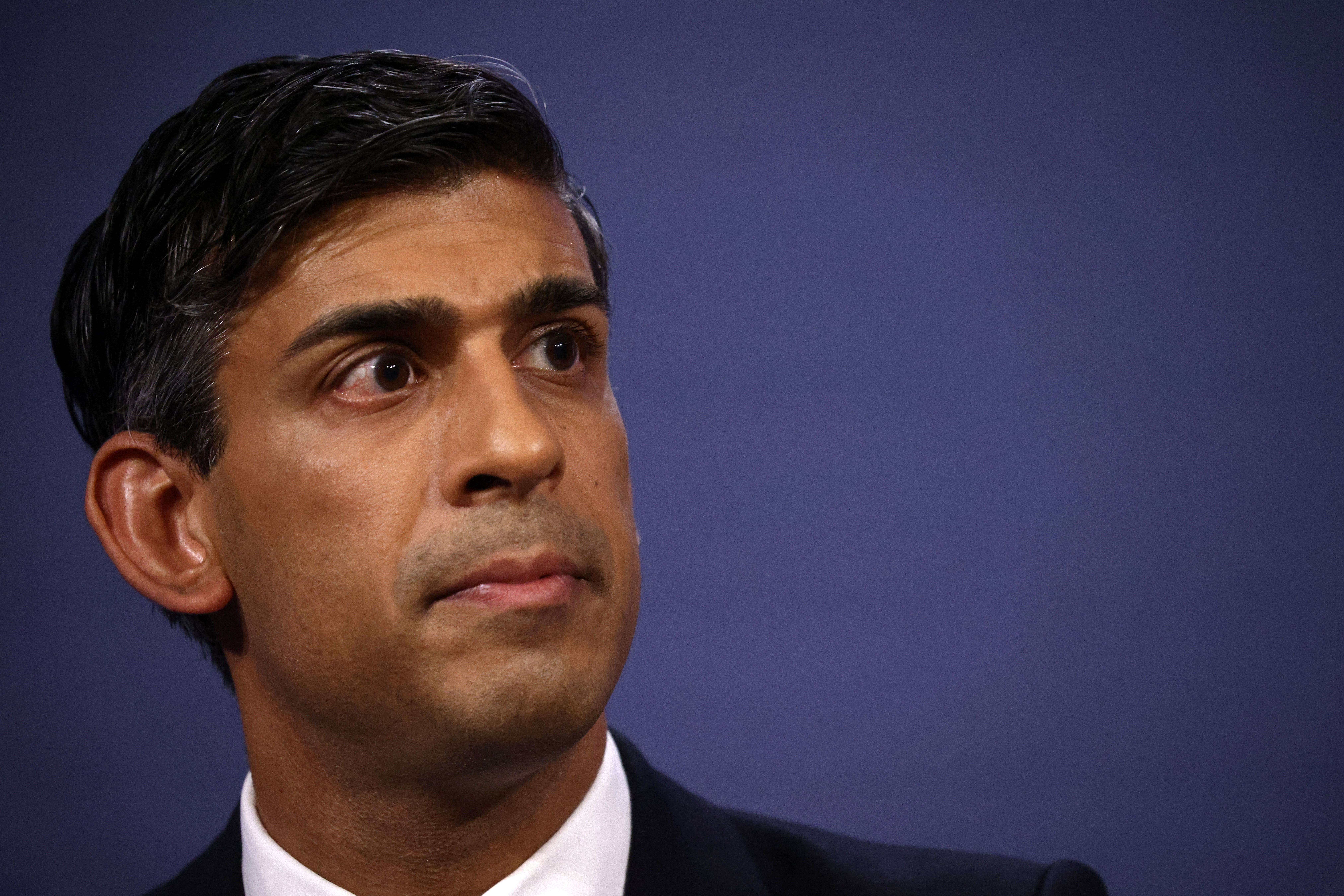A pledge to abolish inheritance tax would be an irresponsible measure
The ‘death tax’ is unpopular until people are asked: what tax rises or public spending cuts would you prefer instead?

Inheritance tax is the Conservatives’ “smash glass in case of emergency” button. That the prime minister is thinking about a promise to abolish inheritance tax for his election manifesto is a measure of his desperation.
The device was last activated by George Osborne, when he was shadow chancellor, and he and David Cameron were terrified that Gordon Brown might call an election in the autumn of 2007. Mr Osborne’s plan to exempt the first £1m from tax helped unite the Tory annual conference and secured headlines that helped turn the opinion-poll tide in the party’s favour.
Mr Sunak would appear to be similarly spooked by Labour’s electoral prospects, but there is no guarantee that a promise to cut or abolish inheritance tax would be similarly successful. It is well known that inheritance tax is one of the most unpopular taxes in opinion polls, but this reflects the shallowness of public opinion research as much as the depth of the desire of humans to provide for their children.
If people understand that most homes worth less than £1m are exempt, that inheritance tax is paid by fewer than one in 25 of the population and that it raises a useful £7bn a year, attitudes tend to become less adverse, especially when prompted with the question: what tax rises or public spending cuts would you prefer instead?
Hence the briefing to journalists that abolition would be framed as an “aspirational” promise to voters. This is similar to the view among some Conservatives that voters on average earnings are opposed to the higher rates of income tax on the minority of top earners because they hope to be among their number one day.
The Independent is all for aspiration, and we suspect that the opposite impulse is just as strong, if not stronger, which is that all voters tend to be in favour, in practice, of taxes that fall on other people. One of the anonymous Downing Street sources quoted by The Times offered a slightly different rationale, saying: “There is a conversation about making it a values issue.” Again, we understand that, in principle, most voters identify with the “value” of providing for one’s family over the generations. But again, that value is balanced in practice by the incidence of the tax on a small minority of the wealthiest.
For many people, there is another principle in play, which is that of progressive taxation: that taxes should be levied in proportion to ability to pay, and that the broadest shoulders should carry the heaviest burden. Inheritance tax touches on atavistic impulses in a way that income tax no longer does (although it did wherever it was first introduced), but when it is measured against the alternatives, the meritocratic arguments for it are strong. Death is an effective point at which to levy a tax, with few distorting incentive effects; and for the recipients an inheritance is the very definition of an unearned benefit.
Ultimately, however, the argument for keeping inheritance tax is the mirror image of the Conservative attempt to suggest that Labour is fiscally irresponsible. Every time a shadow minister as much as raises an eyebrow to disapprove of a government policy, the Tory attack is the same: “If your policy is different, how would you pay for it?”
If the Conservatives promise to abolish inheritance tax, they will be asked: “How will you pay for it?” And every answer they can give will confirm that the country will be better off keeping inheritance tax and maintaining sound public finances.



Join our commenting forum
Join thought-provoking conversations, follow other Independent readers and see their replies
Comments